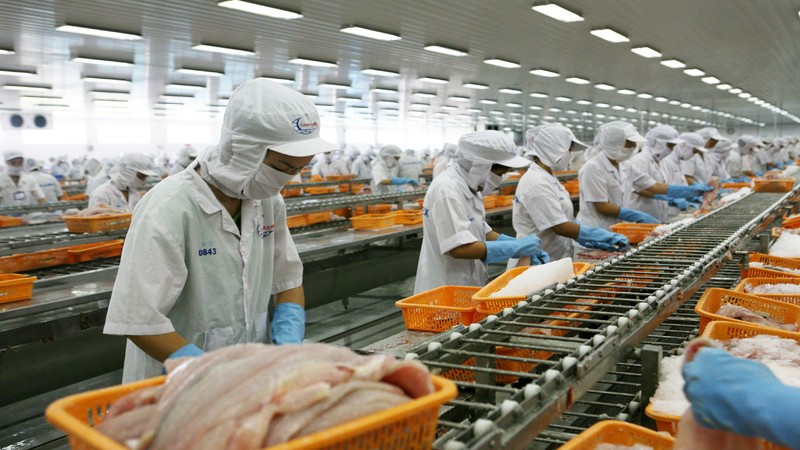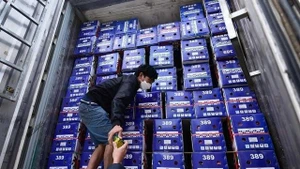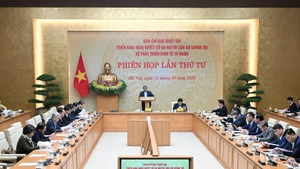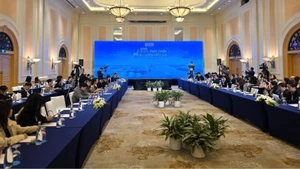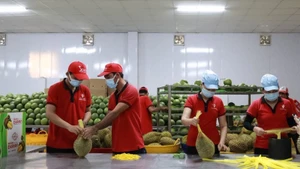For the first time, Vietnam has surpassed India and Thailand to become the largest rice exporter to Singapore. The country also jumped one place to become the fifth largest exporter of aquatic products to the market for the first time.
Statistics from the Accounting and Corporate Regulatory Authority of Singapore reported that in the first three months of this year, the country imported nearly 340 million SGD worth of aquatic products from 100 countries and territories, a decrease of 5.67% from the same period in 2023.
Among the top 15 seafood exporters of aquatic products to Singapore during the period, Malaysia ranked first with a 13.6% market share, followed by Norway at 11.45%, Indonesia at 11.13%, and China at 10.15%.
For the first time, Vietnam surpassed Japan to become the fifth largest rice exporter to Singapore, with the market share occupied by the two countries estimated at 8.58% and 8.34%, respectively.
Vietnam dominates the Singapore seafood market with frozen fish fillets and processed fish products.
Vietnam’s aquatic exports to Singapore reached over 24 million SGD (17.64 million USD) during January - March, up 3.22% year-on-year.
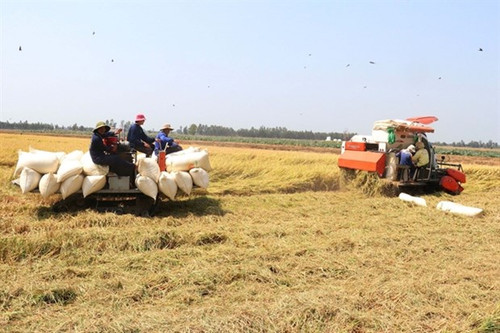 |
| Vietnam ships 36.15 million SGD (26.55 million USD) worth of rice in the first three months of 2024 (Photo: VNA) |
Regarding rice products, Vietnam shipped 36.15 million SGD (26.55 million USD) worth of rice in the first three months of this year, an increase of 80.46% over the same period in 2023, according to the Accounting and Corporate Regulatory Authority of Singapore.
With this result, for the first time, Vietnam became the largest rice exporter to Singapore, winning 32.03% of the market share.
Vietnam was followed by Thailand with an export value of 33.63 million SGD, while India came third with 33.16 million SGD. The three leading exporters accounted for 91.21% of the rice market share in Singapore.
Singapore imported nearly 112.9 million SGD worth of rice in the first three months of this year, up 23.86% year on year.
Counsellor Cao Xuan Thang, head of the Vietnam Trade Office in Singapore, revealed that Singapore has continuously expanded and diversified supply sources.
The move aims to ensure food security, but this has also boosted competition among seafood exporters to the country.
In addition, rising inflation is also a big challenge for the fisheries industry of the countries exporting to Singapore, including Vietnam, he noted.
Any that can improve their product quality, capitalise on logistics advantages, and minimise costs will gain a greater competitive edge in exporting to Singapore.
Counsellor Cao Xuan Thang, head of the Vietnam Trade Office in Singapore
Therefore, he stressed that to maintain, raise its ranking, as well as market share, and increase the export value in this market, Vietnam needs to further improve product quality.
Any that can improve their product quality, capitalise on logistics advantages, and minimise costs will gain a greater competitive edge in exporting to Singapore, he noted.
Vietnamese businesses need to pay special attention to updating importers’ regulations and strive to maintain the quality and brand of Vietnamese products, he added.
Regarding rice export, to increase the market share and sustainably maintain its top position, all Vietnamese ministries, sectors, localities, associations, and businesses should join hands together in strengthening the promotion of Vietnamese rice products and trademarks.
Vietnamese rice exporters need to continue improving their competitiveness and enhancing the quality of rice.
The Vietnam Trade Office in Singapore office will organise more trade promotion activities to increase the presence of Vietnamese rice in this potential market.
